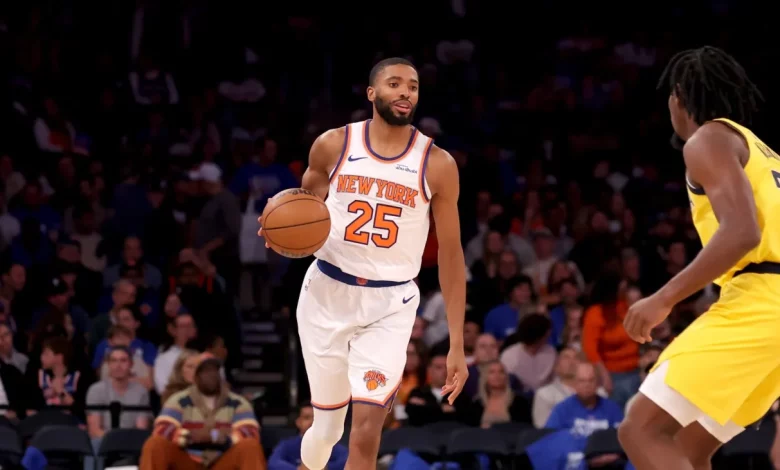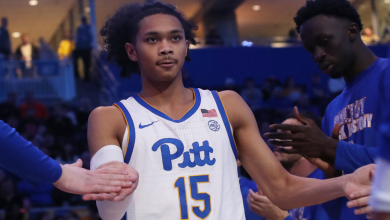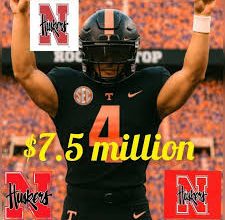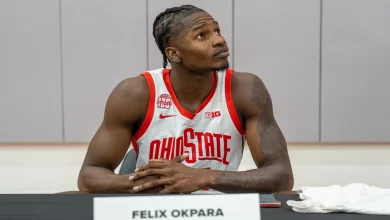Mikal Bridges gives up a few million in a contract extension to help the Knicks build their roster

In the modern landscape of professional sports, where contracts and personal finances often take center stage, acts of selflessness are both rare and inspiring. Recently, Mikal Bridges made headlines by giving up a few million dollars in his contract extension to help the New York Knicks strengthen their roster. This decision underscores his unwavering commitment to team success and exemplifies the evolving culture of player loyalty and leadership in the NBA.
This detailed exploration will examine the context of Bridges’ decision, the significance of sacrifice in professional sports, his leadership qualities, the impact on the Knicks’ roster-building strategy, and what this means for the broader NBA landscape.
Context: Mikal Bridges and the New York Knicks
Who Is Mikal Bridges?
Mikal Bridges, a talented forward known for his defensive prowess, versatility, and efficient scoring, has established himself as a key player in the NBA. Originally drafted by the Phoenix Suns, Bridges gained recognition for his lockdown defense, three-point shooting, and high basketball IQ. His performances played a significant role in the Suns’ deep playoff runs and ultimately contributed to his reputation as one of the league’s premier two-way players.
Trade to the Knicks
The trade that brought Bridges to the Knicks was a pivotal move for the franchise. The Knicks, a storied franchise with a passionate fan base, have long sought a star-caliber player who can elevate their competitiveness. Acquiring Bridges was seen as a strategic step toward contending in a highly competitive Eastern Conference.
Contract Negotiations and the Sacrifice
In negotiations for his extension with the Knicks, Bridges demonstrated a willingness to accept less financial compensation—sacrificing a few million dollars—so that the franchise could allocate resources elsewhere. This decision was driven by a desire to help the team strengthen its roster through signings, trades, or salary cap flexibility.
The Significance of Sacrifice in Professional Sports
Historical Perspective
Throughout sports history, acts of sacrifice by star players have often served as defining moments—examples of leadership, selflessness, and team-first mentality. Legends like Michael Jordan, Tim Duncan, and Kobe Bryant prioritized team success over personal accolades at various points in their careers, setting standards for professionalism.
Modern NBA Dynamics
In today’s NBA, where player empowerment and lucrative contracts dominate headlines, acts of sacrifice are less common but increasingly valued. Players who willingly forgo some of their earning potential for the betterment of the team demonstrate maturity, leadership, and a focus on legacy.
Implications of Financial Sacrifice
When a player sacrifices financial gains, it can have ripple effects—boosting team chemistry, fostering a culture of unity, and encouraging other players to prioritize collective goals over individual rewards. It also signals to fans and management that the player is committed to winning, which can positively influence team morale.
Mikal Bridges’ Leadership and Character
A Team-First Mentality
Bridges’ decision to reduce his salary highlights his team-first mentality. It reflects a recognition that basketball is a team sport where collective effort often outweighs individual brilliance. His willingness to make personal sacrifices underscores his leadership qualities and dedication to elevating the entire roster.
Leadership Beyond Talent
While Bridges is an elite defender and scorer, his leadership extends beyond skill. He exemplifies professionalism, discipline, and humility—traits that inspire teammates and set a positive tone within the organization.
Influence on Team Culture
The Knicks’ culture can benefit significantly from such selfless acts. When established players prioritize team success, it fosters an environment of trust, shared purpose, and resilience—traits essential for deep playoff runs.
Personal Motivation and Values
Bridges’ decision may also be rooted in personal values—his desire to leave a lasting legacy, contribute to a winning culture, or set an example for younger players. His actions demonstrate that success is not solely measured by individual contracts but by the impact one has on the team and organization.
The Strategic Impact on the Knicks’ Roster Building
Financial Flexibility
By accepting a slightly lower salary in his extension, Bridges provides the Knicks with cap space or flexibility to pursue other high-impact players via free agency or trades. This strategic move allows the franchise to assemble a more competitive roster around him and other core players.
Supporting Role Players and Depth
The Knicks have been building a balanced roster with a mix of established veterans and young talent. The financial savings from Bridges’ sacrifice can fund key role players, sharpshooters, or defensive specialists, all crucial for playoff success.
Long-term Planning
This sacrifice indicates that the Knicks’ management and players are thinking beyond immediate success—focusing on sustainable competitiveness. It reflects a willingness to invest in collective growth rather than short-term gains.
Franchise Culture and Identity
Bridges’ actions reinforce the Knicks’ identity as a team committed to winning with integrity and selflessness. Such a culture attracts free agents who value camaraderie and shared purpose, further strengthening the franchise’s prospects.
Broader NBA Implications
Setting a Precedent
Bridges’ willingness to sacrifice a few million dollars could inspire other star players to prioritize team needs over personal gains. It challenges the narrative that maximum contracts are the only path to success and encourages a culture of sacrifice for collective good.
Influence on Player-Management Relationships
This act may foster stronger relationships between players and management, built on mutual respect and shared goals. It can lead to more collaborative roster-building strategies and a focus on team chemistry.
Impact on Contract Negotiations
Teams might view such sacrifices as an investment in loyalty and leadership, potentially influencing future contract negotiations. Players demonstrating such traits may be viewed more favorably by teams seeking both talent and character.
Enhancing the NBA’s Global Image
Acts of selflessness and leadership elevate the league’s image, showcasing players as not just athletes but also team-oriented leaders. This can attract more fans, sponsors, and young athletes inspired by positive role models.
Future Outlook: What Lies Ahead for Bridges and the Knicks?
Bridges’ Role in the Knicks’ Future
As a key piece of the Knicks’ puzzle, Bridges is poised to be a leader on and off the court. His sacrifice signals a commitment to the franchise’s long-term success, and he is likely to be a cornerstone around which the team builds its identity.
Potential for Leadership and Legacy
Bridges’ actions could define his legacy—one of humility, sacrifice, and dedication to team success. Such qualities are often remembered and celebrated long after a player’s prime years.
Continued Team Development
The Knicks, empowered by Bridges’ sacrifice, can pursue other strategic moves—adding complementary pieces that fit their system and ethos. This holistic approach enhances their chances of making deep playoff runs and competing at the highest level.
Inspiring the Next Generation
Bridges’ example can inspire young players across the league and in youth programs, emphasizing that teamwork, sacrifice, and character are as vital as talent.
A Model of Leadership and Sacrifice
Mikal Bridges’ decision to give up a few million dollars in his contract extension to help the New York Knicks build a better roster exemplifies the highest ideals of leadership, selflessness, and commitment to team success. In an era where individual accolades and maximum earnings often dominate narratives, Bridges’ actions stand out as a reminder of the true spirit of sportsmanship and team-oriented excellence.
His sacrifice not only benefits the Knicks’ immediate goal of contending but also sets a powerful example for other players and organizations. It underscores that long-term success in professional sports often depends on players willing to prioritize collective goals over personal gains.
As Bridges continues his career with the Knicks, his leadership and sacrifice will likely inspire future players to adopt similar values, fostering a culture of loyalty, humility, and shared purpose. His story is a testament to how genuine leadership—grounded in sacrifice and character—can elevate both a team and the sport itself.









